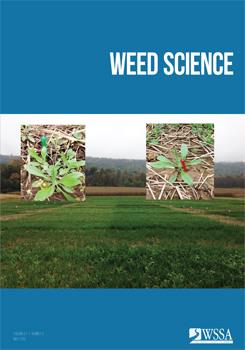Barnyardgrass [Echinochloa crus-galli (L.) P. Beauv.] is acknowledged to be the most troublesome weed in rice fields in Anhui and Jiangsu provinces of China. It cannot be effectively controlled using certain acetolactate synthase (ALS)-inhibiting herbicides, including penoxsulam. Echinochloa crus-galli samples with suspected resistance to penoxsulam were collected to identify the target site–based mechanism underlying this resistance. Populations AXXZ-2 and JNRG-2 showed 33- and 7.3-fold resistance to penoxsulam, respectively, compared with the susceptible JLGY-3 population. Cross-resistance to other ALS inhibitors was reported in AXXZ-2 but not in JNRG-2, and occasionally showed higher sensitivity than JLGY-3. In vitro ALS activity assays revealed that penoxsulam concentrations required to inhibit 50% of ALS activity were 11 and 5.2 times greater in AXXZ-2 and JNRG-2, respectively, than in JLGY-3. DNA and predicted amino acid sequence analyses of ALS revealed Ala-205-Val and Ala-122-Gly substitutions in AXXZ-2 and JNRG-2, respectively. Our results indicate that these substitutions in ALS are at least partially responsible for resistance to penoxsulam.
How to translate text using browser tools
30 May 2019
Target Site–Based Penoxsulam Resistance in Barnyardgrass (Echinochloa crus-galli) from China
Jiapeng Fang,
Tingting Liu,
Yuhua Zhang,
Jun Li,
Liyao Dong
ACCESS THE FULL ARTICLE

Weed Science
Vol. 67 • No. 3
May 2019
Vol. 67 • No. 3
May 2019
Acetolactate synthase (ALS)
cross-resistance
target-site mutant




